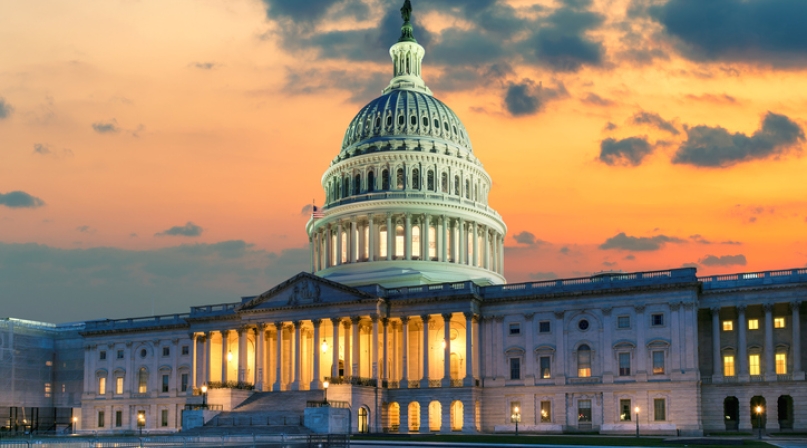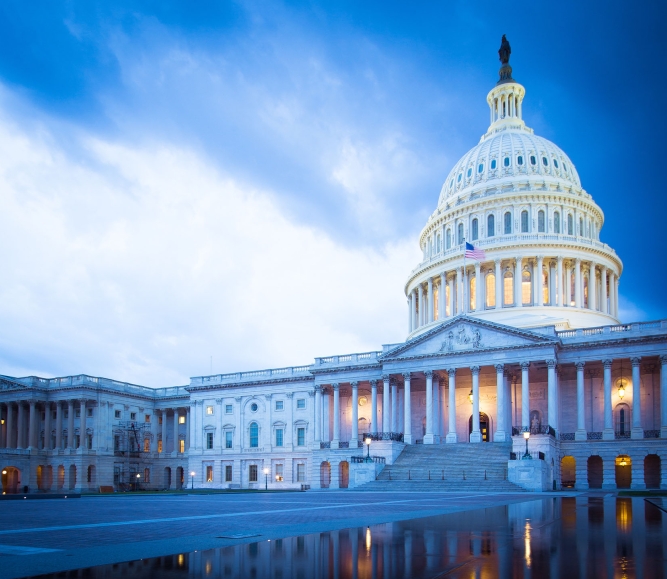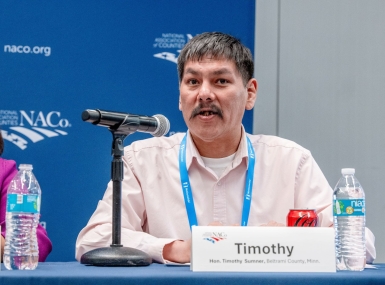FY 2022 omnibus appropriations bill released
Author

Paige Mellerio
Upcoming Events
Related News

Key Takeaways
On March 9, top appropriators unveiled the final FY 2022 omnibus spending package, the Consolidated Appropriations Act of 2022 (H.R. 2471), providing $1.5 trillion in federal discretionary spending across all 12 appropriations bills. With the current Continuing Resolution (CR) to fund the government set to expire at midnight on March 11, the U.S. House will begin consideration of the omnibus on March 9. The House will also vote on another short-term stopgap spending measure (H.J.Res.75) to extend federal appropriations through March 15 to give the U.S. Senate more time to clear the spending package through the evenly divided chamber.
The introduction of the omnibus concludes months of negotiations between top appropriators and Congressional leadership over topline defense and nondefense discretionary spending levels; the final agreement provides for increases of 5.6 percent and 6.7 percent respectively. The spending package includes several key provisions of importance to counties including, but not limited to:
- $550 million to expand broadband internet access in underserved areas, including rural areas
- $102.9 billion for DOT to begin standing up new competitive programs established by the Bipartisan Infrastructure Law, and fund new and existing transportation programs
- One-year of full, mandatory funding of the Payment in Lieu of Taxes Program (PILT)
- Increased funding for Rural Development Housing programs such as rental assistance and loans for multi and single-family housing
- Additional $840 million for capitalization grants under the Drinking Water State Revolving Fund and Clean Water State Revolving Fund
- $75 million for Election Security Grants to improve the administration of federal elections, enhance election technology, and make security improvements as authorized by Help America Vote Act (HAVA)
- $200 million in new and flexible funding through the Centers for Disease Control and Prevention (CDC) to support the public health infrastructure and capacity nationwide
- $100 million increase to the Mental Health Block Grant, which helps support services across the behavioral health continuum
- $583 million in additional funding within the Special Supplemental Nutrition Program for Women, Infants and Children (WIC) program
- $289 million increase in funding for Head Start, which funds local organizations – including county government agencies- to promote access to high-quality early childhood education among low-income children
- Increased funding to $674 million for the Byrne Memorial Justice Assistance Grant (JAG) program
- Increased the Federal cost share for FEMA’s Public Assistance program from 75 percent to 90 percent for non-COVID related disasters from January 1, 2020 – December 31, 2021
- $5.7 billion to the US Forest Service targeted toward hazardous fuel treatments and increased year-round staffing capacities
In addition to regular appropriations, the omnibus bill includes the Violence Against Women Act of 2022 (VAWA) to reauthorize VAWA and funding for grant programs utilized by state and local VAWA service providers for five-years. The initial text of the omnibus included $15.6 billion in supplemental funding for COVID-19 relief, however these supplemental funds were ultimately stripped from the bill during last minute negotiations.
NACo's analysis of the FY 2022 omnibus spending package, including a chart outlining funding levels for federal programs of importance to counties, is available here.
Resource
NACo Legislative Analysis: Year End COVID-19 Relief and Omnibus Spending Package

Related News

County Countdown – April 7, 2025
Every other week, NACo's County Countdown reviews top federal policy advocacy items with an eye towards counties and the intergovernmental partnership. This week features a budget reconciliation update, HHS restructuring and more.

NACo Legal Advocacy: Bondi v. VanDerStok
Garland v. VanDerStok has implications for the ability of county law enforcement to uphold public safety and investigate crimes involving ghost guns.
